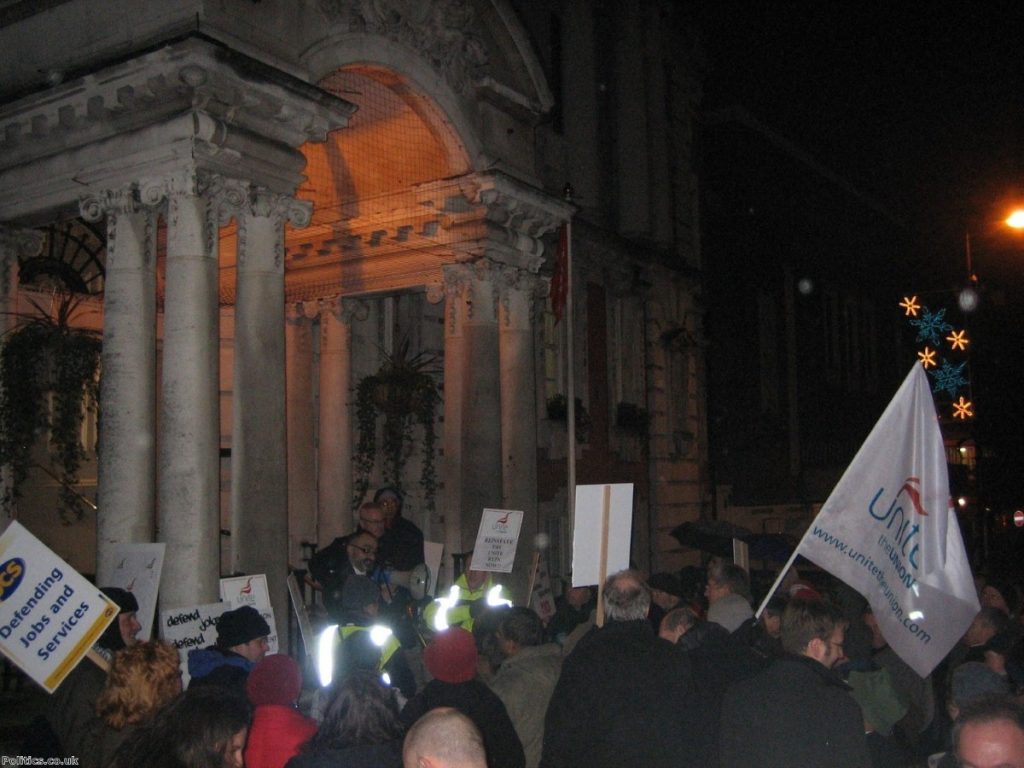The Tory plot to close down local democracy
By Ryvka Barnard
Local council divestment might not sound very exciting, but it now forms a major battleground for those fighting against tyrannical governments around the world.
Local authority divestment campaigns were a central part of the anti-Apartheid movement and an effective response to Margaret Thatcher's failure to act on the systematic racial segregation and discrimination in South Africa. Across the UK, ordinary people stepped up, organised, and by 1985 over 120 local councils had taken action to end their ties with Apartheid.
The people were winning and Thatcher was losing. Her answer: shut down the democratic space. In 1988 she imposed broad new restrictions on councils taking 'political action'.


Ultimately the restrictions proved ineffective, but thirty years on, the government is once more trying to shut down local democracy. This time the rights of Palestinians are at stake, suffering under another Apartheid regime.
In November 2015, the government announced a proposal to block local councils from deciding how to invest their pension funds. It is currently consulting the public. This the latest in a sustained government assault on democratic rights and freedoms following the Lobbying Act, Trade Union Bill, Prevent and much else.
Under the new plan, the government will have the power to veto investment decisions made locally on ethical grounds concerning human rights, arms trade, fossil fuels and much else.
The move is a clear attempt to clamp down on the growing power of the grassroots boycott, divestment and sanctions (BDS) movement which aims to end government and corporate complicity with Israel’s violations of Palestinian rights. The Conservative Party said as much in a press release, labelling the proposal a response to the "spread of militant divestment campaigns against UK defence and Israeli firms."
For the past decade, trade unions representing thousands of workers, student unions, faith groups and local councils have mobilised to end UK complicity with Israel's repeated violations of international law in its policies against Palestinians. Where the UK government has failed to hold Israel to account for its actions, ordinary citizens have stepped in. At least a dozen local councils have taken steps to divest from companies engaged in Israeli human rights abuses.
The proposal comes at a time when the BDS movement is having unprecedented success around the world. Already in 2016, the American United Methodist Church declared the five largest Israeli banks off-limits for investment, French telecom giant Orange terminated its Israeli contracts, and Irish multinational CRH divested its share from the Israeli company supplying concrete for the Apartheid Wall. All of these victories are the result of hard-fought public campaigns, in the face of apathetic governments.
The proposal is explicit: "…using pensions and procurement policies to pursue boycotts, divestment and sanctions against foreign nations and the UK defence industry are inappropriate, other than where formal legal sanctions, embargoes and restrictions have been put in place by the government."
The government's aim is clear: to deter local councils from taking divestment action. And if the intimidation fails? The government will have the final say anyway, through something called 'power of intervention'. So much for George Osborne's so-called 'devolution revolution'.
And when the government is not ignoring local people, it's trying to scare them, shamefully playing on the financial insecurities of people already saddled with unnecessary austerity.
"Divisive policies undermine good community relations, and harm the economic security of families by pushing up council tax," claims Greg Clark, secretary of state for communities and local government. This is a dangerous red herring slipped into the proposal. There is no evidence to support his claim of a link between divestment and higher council tax. It is deliberate scaremongering and exposes the dishonesty at the heart of the government’s anti-democratic proposal.
Despite government efforts to repress it, local divestment action against South African Apartheid helped to topple that brutal regime.
History was shown to be on their side. Now the same is happening again.
Ryvka Barnard is the Senior Militarism and Security Campaigner at War on Want
The opinions in Politics.co.uk's Comment and Analysis section are those of the author and are no reflection of the views of the website or its owners.









